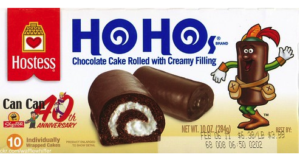My husband, aka #1 Emily’s Bread Fan, aka “Better Burque,” ate the second to last sticky bun (I ate the last one).
It wasn’t my most successful bake. The formulas I use are just that—formulas, not recipes, allowing you to modify as seen fit. In the case of the sticky buns, I did not follow my instincts.
For example, I usually roll my sticky bun dough and then slice. This time, I sliced and then rolled. The sugar-cinnamon-butter concoction that gives sticky buns their actual stickiness seemed like way too much (really? 1 lb. of butter?) for the quantity of dough. Nonetheless, my #1 fan didn’t seem to care that they were a tad doughy, under-proofed and drowning in sugar/butter/cinnamon.
There was no subtlety to this bake and it disappointed me. It was a tough week—when your heart’s not in it, it shows.
I have been accused of being a bit of a food snob. And, well, I have to admit that this is somewhat true. Remember Paris? Raiding my landlady’s refrigerator? Being called a “gourmand?” I blame it on her, because I don’t think this love of great food, and especially of baked goods, came from my childhood or upbringing.
Stated more baldly, I don’t think this obsession started with my mother. When I was young, mom was studying for her Ph.D. and writing her dissertation. I remember holding flash cards for her as she practiced French vocabulary for the language requirement (or maybe it was Spanish). I remember roast beef and stuffed cabbage. I remember recipes clipped out of magazines but never made.
I’m not sure what we ate as children—this being the 1970s, I’m pretty sure there were Twinkies and Wonder Bread and packaged bologna and those chocolate rolled things with the white cream in between the layers and hard chocolate coating. What were those called?

Definitely Ho-Hos
I’m certain my mother loved me, but she wasn’t much of a nurturer—she wasn’t into wearing an apron and fussing over us. She was already carting us to our infinite riding and ballet lessons, while studying for her own future, and feeding us was a general afterthought. She was not June Cleaver. In fact, I remember being home alone, a lot.
The baking I do now, to get psychological about it, thus has multiple layers of meaning for me. There’s of course the art and craft of it, the mastery of skills, and learning to be really good at something (I appreciate excellence and strive for it). But there’s something more that has to do with recognition.
This is the thing that happens when you bring a homemade baguette to a dinner party: Everyone tells you how good it is, and for a brief moment I feel recognized, acknowledged, and momentarily important to the people I care about. You also feel great love—giving friends a moment of gustatory joy is perhaps even more gratifying.
It is hard to say “I love you,” and harder still to feel loved, if you’re a chronically insecure person who grew up with striver parents focused on things besides their children. So when I bake, and my husband and friends appreciate this effort and skill (even though I might be self-critical), it’s a crazy feeling of security. As long as I keep baking, they’re not going to abandon me.
In a related development, as of yesterday I’m one of those people who buys 50 lb. bags of artisan flour from a special mill. This recently added wrinkle to my baking obsession has been caused by the fact that there’s simply no bread flour to be had locally, and 50 lbs is the smallest bag I could find online.

Since the pandemic started, the world has discovered what I already know: There is something deeply satisfying about providing your family with something delicious, and also about watching science in action—bread baking is about math, percentages and chemical reactions.
But when I look at baker’s percentages, I like to think that 100 percent of the process is about love. The fact that Better Burque eats my so called failures joyfully is what it’s really all about.
